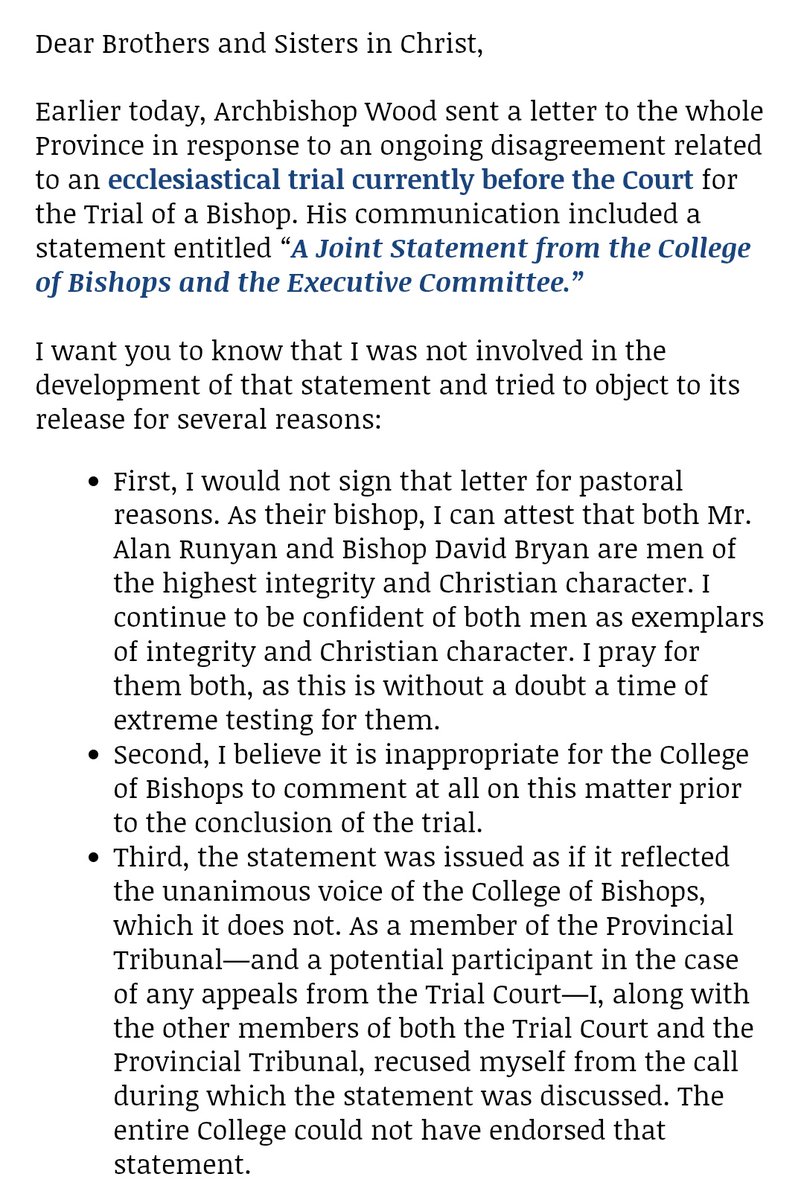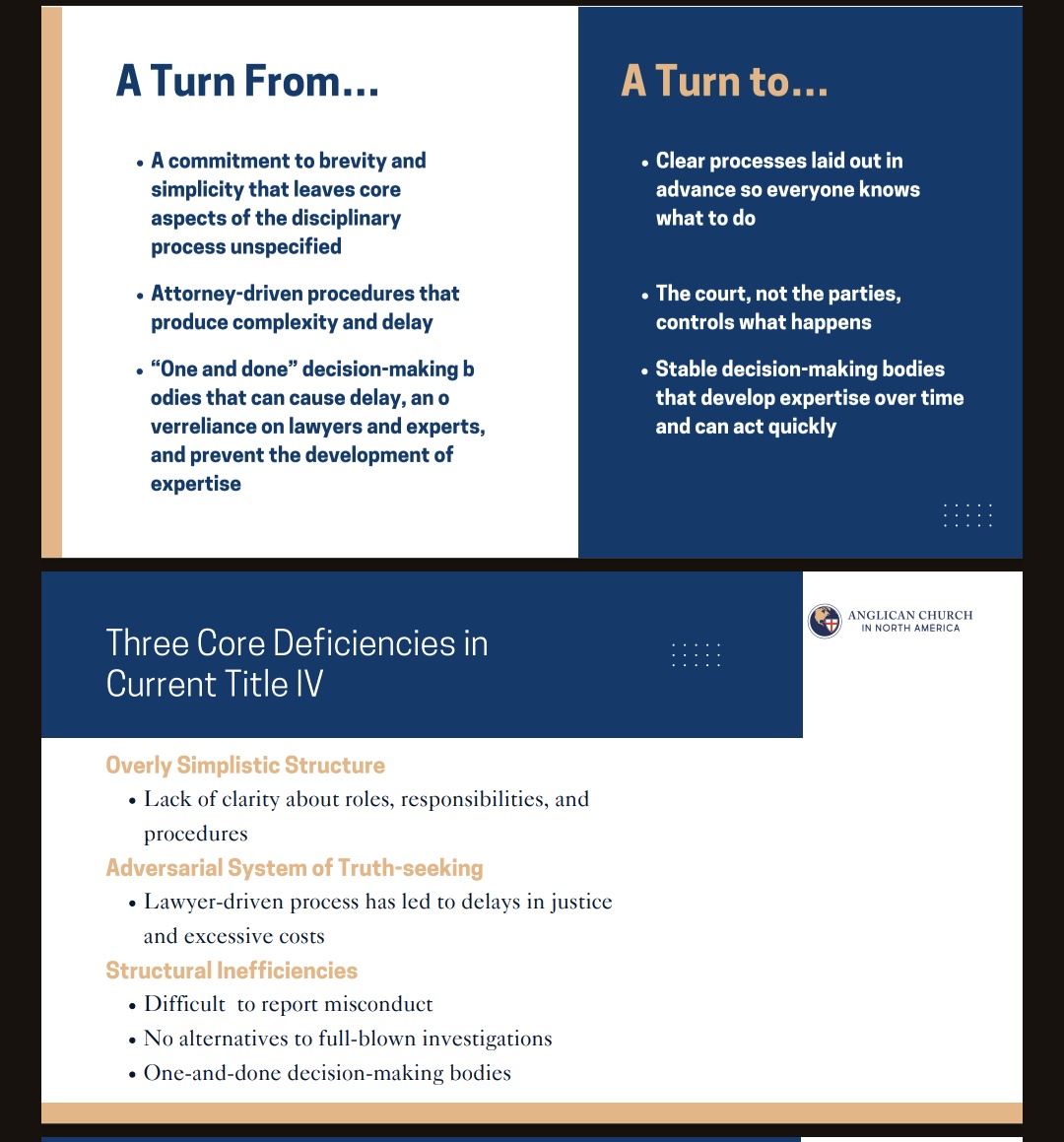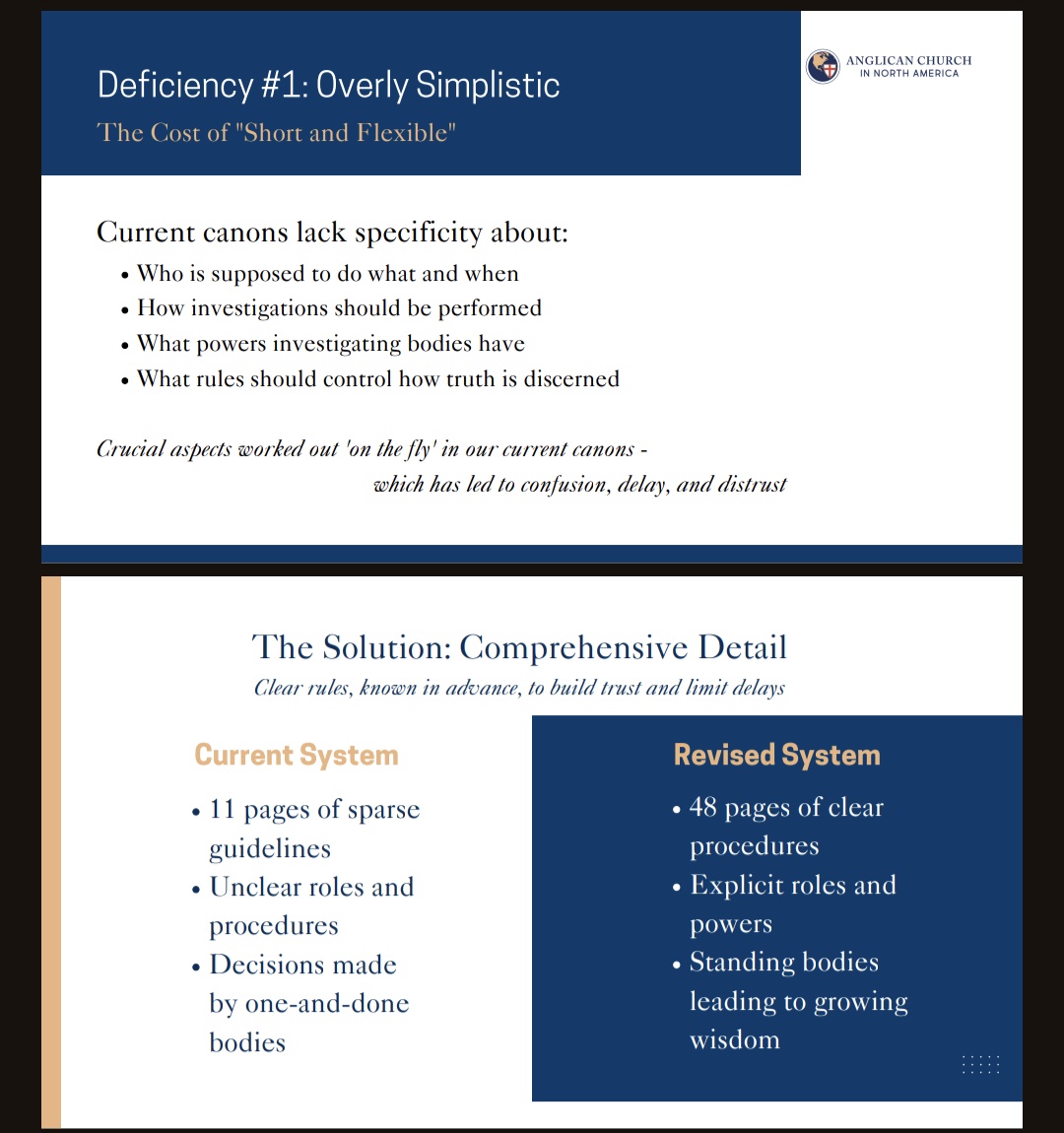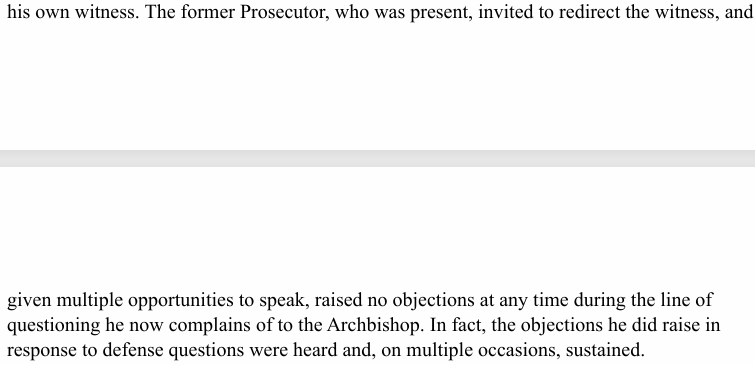The ACNA released an FAQ on Abp. Steve Wood's leave: "While our canons do not establish limits on how long investigative and disciplinary proceedings last, we expect that the relevant church bodies ... will make every effort to resolve these matters as quickly as possible". 🧵 

"The Dean [Ray Sutton] is a senior bishop whose character is known and well respected. ... Bishop Julian Dobbs is one of the most senior active diocesan Bishops in the College with a strong reputation for advancing misison." 

Abp. Wood will "continue to be paid and receive benefits" while on leave, but he is "solely responsible for seeking and retaining independent counsel" in the disciplinary matter. 

"In the event a Board of Inquiry recommends a trial, the canons are clear that the Court for the Trial of a Bishop has sole discretion to determine what is and what is not made public to best protect the integrity of its proceedings." 

* mission
• • •
Missing some Tweet in this thread? You can try to
force a refresh


















